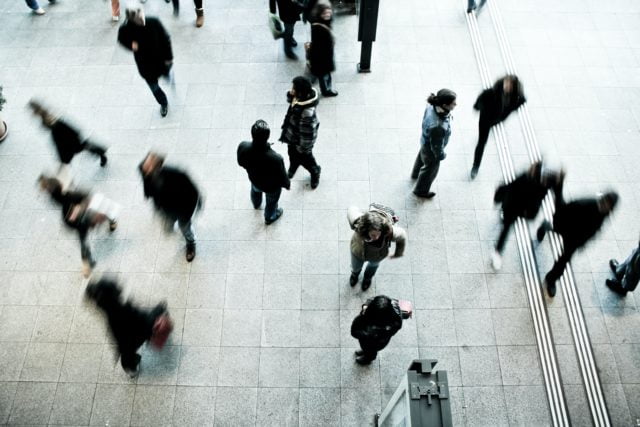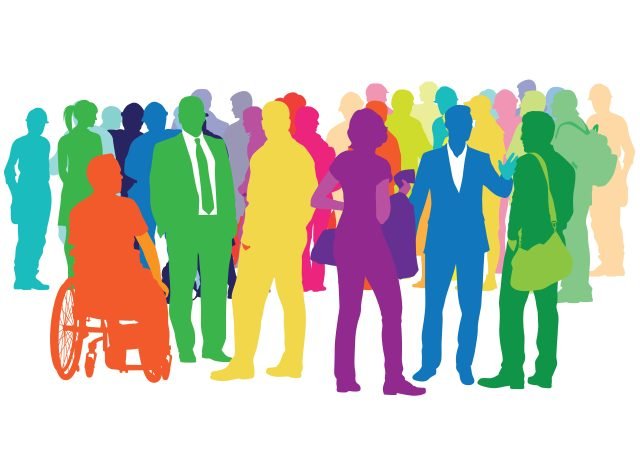Filter


Boomers Move into Post-Career Jobs
Many baby boomers retire the conventional way – by leaving their career jobs. For the others, the first step in retiring involves stopping over in a different job than they’ve held for years. A sketch of the older workers who transition to post-career jobs – and their reasons for doing so – emerges from a survey of a fairly elite group of mostly college-educated professionals: clients of the Vanguard investment company. They made the job transitions for a variety of reasons. More than half of them either had initially retired but decided to go back to work or were forced out of a long-term job by a layoff, firing, or business closure. However, Vanguard’s clients are apparently in good health,…
October 6, 2020
Cash from Kids Slows After Parents Retire
It’s not unusual for workers who grew up in lower-income households to help their parents out financially. But a new study uncovers a twist in this familiar story: once the parents are old enough to collect Social Security, the money flowing from adult child to parent slows down. And when this occurs, the offspring are able to start saving money. Social Security, by reducing disadvantaged parents’ reliance on their children, “may be able to interrupt the cycle of poverty between generations,” Howard University researcher Andria Smythe concluded from her analysis. To chart changes over time in cash transfers within families, Smythe followed U.S. households’ finances between 1999 and 2017 using survey data from the Panel Study of Income Dynamics. S…
October 1, 2020
How High School Finance Courses Fail
In more than 30 states, completing a personal finance course is required for a high school degree. The requirement started gaining traction around the country in 2005, despite the long-running debate about whether the courses even work. A new study gets at whether high school instruction is effective by asking a fresh question: do the finance classes make people feel better about their situation – and feeling better about one’s finances is an indication things are, in fact, improving. This departs from past studies focused on objective measures like credit scores and past-due loans. The researchers find that high school courses have generally been a positive development: adults who grew up in states that require the courses do, in fact,…
September 29, 2020
More Gen-Zers are Living with Parents
When Millennials’ unemployment rate spiked during the Great Recession, millions of them alleviated their financial problems by moving in with their parents. Now the coronavirus is chasing Generation Z back home. Some 2.6 million adults, ages 18 to 29, who had been living on their own moved back home between February and July, the Pew Research Center reports. This pushed up the share of young adults living with one or both parents to 52 percent, which exceeds the rate reached during the Great Depression. Pew’s analysis included some Millennials. But members of the younger Generation Z account for the vast majority – more than 2 million – of the young adults who’ve returned to the financial security of their parents’…
September 22, 2020
Isolation May Worsen Impact of Disability
A danger for working-age people with disabilities is that they become socially isolated, which can cause a further deterioration in their health and ability to function. A good example of this vicious cycle is people with severe arthritis. If joint pain makes walking more difficult, it can limit one’s ability to do things with friends or be out in public, which means more social isolation and less exercise to ease the pain’s disabling effects. A new Mathematica study connects this phenomenon to the sharp rise in the share of Social Security disability awards going to people with arthritis, back pain, and other musculoskeletal conditions. Between 1997 and 2017, there was a slight increase, to 13.4 percent, in the share of…
September 22, 2020
2020 Disability Blogs Tackle Myriad Issues
Squared Away has featured numerous articles this year – the 30th anniversary of the Americans with Disabilities Act – about the challenges that people with disabilities must deal with. One in four adults in this country has some type of disability. What becomes clear when looking back at this collection of articles is the importance of ensuring that those who are capable of working get the support they need to overcome their unique challenges. Employment rates, which are lower for people with disabilities, can be improved greatly if they receive support. One recent blog examined a program to assist people with severe intellectual or learning disabilities. The federal-state Vocational Rehabilitation program supplies coaches who help their clients find appropriate work…
September 17, 2020
Deep Financial Woes Portend Rent Crisis
The economy shows some signs of improving. More than 1 million people went back to work last month, pushing the unemployment rate down to 8.4 percent. But housing experts say a sure sign of trouble ahead is the crisis unfolding among the third of U.S. households who are renters. Things can only get worse for them, because so many were already vulnerable prior to the pandemic after many consecutive years of rising rents that strained their budgets. Prior to the pandemic, Harvard’s Joint Center for Housing Studies estimates that more than 40 percent of U.S. renters paid more than 50 percent of their incomes for rent – far more than is affordable for most workers. And these rent-burdened households aren’t confined…
September 15, 2020
Why the Mix of Disabilities is Changing
The mix of disabilities for people receiving federal disability insurance has changed in important ways that often reflect trends in the health of the population as a whole. Two disabling conditions that have become a growing share of Social Security’s benefit awards in recent decades are mood disorders and various musculoskeletal problems, which include arthritis and back pain. First, consider mood disorders. They range from depression and bipolar disorder to irritability and seasonal affective disorder, and they can hamper someone’s ability to work. Mirroring the rising share of awards for mood disorders, their prevalence in the population has edged up from 54.6 percent of adults in 1997 to 56.2 percent in 2017, according to a study by Mathematica, a researc…
September 10, 2020
A Laid-off Boomer’s Retirement Plan 2.0
Jennifer Lee wanted to work until 70 to max out her monthly Social Security checks – at least that was the plan before she was laid off three years ago from a Washington D.C. church. The church’s newly hired pastor “decided he wanted a whole new staff,” she said. “I felt to a degree he was entitled to do that,” she said – except that “he was only eliminating people on the staff who were over 60.” She wasn’t having any luck finding a new job and felt that her only choice was to sign up for Social Security at 63½ to pay her bills. Eventually, Lee, a one-time nurse and medical administrator, landed a nice part-time job as a…
September 8, 2020
Relocating Can Boost Living Standards
COVID-19, by rearranging work arrangements, is allowing people to rethink where they live. As the virus started to spread in Manhattan last spring, some residents fled the city and began snapping up houses in Westchester County and on Long Island. There is preliminary evidence some people are moving farther afield, to rural areas where small populations create the potential for lower COVID-19 transmission rates. In a Pew Research Center survey, about one in five Americans said the pandemic had either prompted them or someone they know to relocate. The map below shows the big changes in living standards that can accompany a move from a high- to a low-cost part of the country. In each location, the Tax Foundation calculated…
September 3, 2020
Economic Opportunity Reduces Disability
Add upward mobility – an individual’s success in surpassing parents’ economic circumstances – to the factors that can keep federal disability payments in check. A substantial body of academic research has already established that when the economy is growing, unemployed and marginally employed people have better luck on the job market, and their applications for disability insurance start to decline. But booms and busts aren’t the only influence on disability. A new study finds that economic conditions of a different type – the ability of low-income people to move up the economic ladder – can reduce disability by improving their health. People who earn more money tend to be healthier for a variety of reasons, ranging from access to better…
September 1, 2020
Housing Subsidies May Fuel SSI Growth
Federal spending on the Supplemental Security Income (SSI) program has grown substantially in recent decades, making it the single largest source of cash assistance for older or disabled Americans with little or no income. For people with disabilities to qualify for SSI’s benefits – the federal maximum is currently $783 per month, with most states adding in smaller amounts – the disability must severely restrict their ability to work. The average monthly payments under Social Security’s separate disability insurance (DI) program are larger, but people who lack the necessary work history required to apply for DI can seek disability status through SSI. To better understand SSI’s rapid growth, researchers asked whether the preference for housing assistance that some cities giv…















